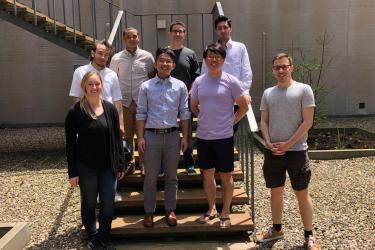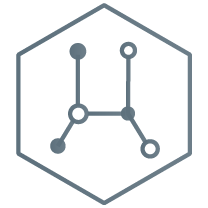
Project Description:
Protein Tyrosine Phosphatases (PTPs) are key signaling enzymes that regulate the exact magnitude and duration of the protein tyrosine phosphorylation in concert with protein tyrosine kinases through reversible tyrosine phosphorylation. Alterations in the phosphorylation patterns, due to dysregulation of PTP activity, are associated with major human diseases including several types of cancer, making PTPs highly compelling drug targets. However, PTPs remain largely untapped as therapeutic options and have long been regarded as “undruggable” mainly due to the highly conserved and positively charged active site. Therefore, it is imperative to develop new approaches to design PTP inhibitors that circumvent the problems associated with the conventional active site-directed approach. This proposal aims to provide an efficient and integrative experimental and computational platform to develop selective inhibitors against PTPs. To do so, we assemble a multidisciplinary research team: Im (computational molecular modeling/simulation and high-throughput virtual screening) and Thevénin (experimental smallcompound and protein chemistry, in vitro and cell-based assays, and biophysical characterization). Specifically, we propose the following Aims: (AIM 1) Identification of potential allosteric PTP1B inhibitors through structure-based virtual screening and experimental validation and (AIM 2) Determination of the mechanism of action of lead compounds and quantitative structure-activity relationship (QSAR) study for lead optimization. This proposal is expected to foster synergistic scientific research and education to both graduate and undergraduate students. The proposed work builds on not only Im and Thévenin’s respective expertise, but also many approaches already in place in the two groups. Thus, while ambitious, we expect students to obtain, during the summer initiative, 1-2 selective and potent lead compounds and to continue to build their research experience beyond the summer period for further evaluation and optimization. Finally, we anticipate that the resulting discovery and validation strategy can be extended to develop small-molecule modulators against a variety of disease-related PTPs for our long-term research goals.





